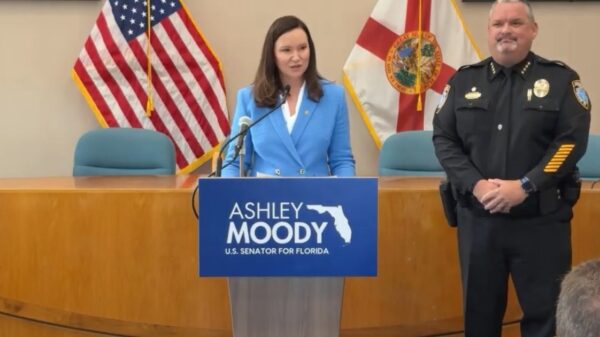Florida Attorney General Ashley Moody, along with the State Attorneys General Robocall Technologies Working Group, sent a letter to the Federal Communications Commission (FCC) this week, urging it to facilitate continued collaboration among state attorneys general and telecom companies to coordinate tracing back illegal robocalls to their source.
Moody weighed in on the letter on Thursday.
“Floridians have been plagued with robocalls for years. I am urging the Federal Communications Commission to work together with state attorneys general and telecom companies in an effort to catch illegal robocalls at the source. This collaboration is essential to helping law enforcement carry out robocall investigations more swiftly and efficiently,” Moody said.
Under the TRACED Act, which became law in December 2019, the FCC will select a single registered association to manage the work of tracing back illegal robocalls. Because a call can pass through the networks of many telecom companies before reaching its final destination, tracing that call—which is key to enforcing laws against illegal robocallers—requires collaboration among telecom companies and state attorneys general. In their comments, the attorneys general note that traceback investigations are necessary for law enforcement to more efficiently identify and investigate illegal robocallers and expose voice service providers that assist and facilitate illegal robocallers.
For the last few years, Moody, along with a group of state attorneys general, has encouraged the telecom industry to increase the number and speed of traceback investigations each month. Many telecom companies joined this effort to stop illegal robocallers. Traceback investigations are more urgent than ever because of coronavirus-related robocall scams, including scams related to coronavirus relief checks, pitches for coronavirus test kits, health plans offering coronavirus testing, work-from-home offers preying on job-seekers, and scams offering relief on utility bills, student loans, taxes, or other debt. Moody’s Office serves as an executive committee member on the State Attorneys General Robocall Technologies Working Group.
The attorneys general of Alabama, Alaska, Arizona, Arkansas, California, Coaorado, Connecticut, Delaware, the District of Columbia, Georgia, Hawaii, Idaho, Illinois, Indiana, Iowa, Kansas, Kentucky, Louisiana, Maine, Maryland, Massachusetts, Michigan, Minnesota, Mississippi, Missouri, Montana, Nebraska, Nevada, New Hampshire, New Jersey, New Mexico, New York, North Carolina, North Dakota, Ohio, Oklahoma, Oregon, Pennsylvania, Puerto Rico, Rhode Island, South Carolina, South Dakota, Tennessee, Texas, Utah, Vermont, Virginia, Washington, West Virginia, Wisconsin and Wyoming all signed the letter.




















